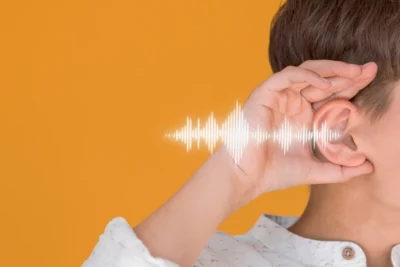 Hearing is a precious sense that plays a vital role in our daily lives. However, many of us engage in habits that can gradually damage our hearing over time.
Hearing is a precious sense that plays a vital role in our daily lives. However, many of us engage in habits that can gradually damage our hearing over time.
Today, we’ll explore some common daily habits that could harm your hearing and provide tips on how to protect your ears.
Listening to Loud Music with Earphones
Many people enjoy listening to music through earphones or headphones, but turning up the volume to high levels can be harmful. Prolonged exposure to loud music can damage the delicate hair cells in your inner ear, leading to hearing loss. To protect your hearing, keep the volume at a moderate level and take regular breaks.
Ignoring Ear Protection in Noisy Environments
Exposure to loud noises at work or during recreational activities can cause hearing damage over time. If you work in a noisy environment or engage in activities like concerts, shooting, or motorcycling, use appropriate hearing protection, such as earplugs or earmuffs.
Q-Tip Misuse
Inserting Q-tips or cotton swabs into your ears might seem like a harmless way to clean them, but it can actually push earwax deeper into the ear canal, leading to impaction or damage. Instead, clean your ears gently with a washcloth and consult a healthcare professional if you have excessive earwax.
Neglecting Regular Hearing Checkups
Many people skip regular hearing checkups until they notice a problem. Early detection of hearing issues is crucial for effective intervention. Schedule periodic hearing assessments to monitor your hearing health, especially if you have a history of exposure to loud noises.
Smoking
Smoking has been linked to an increased risk of hearing loss. The chemicals in tobacco can harm blood vessels, reduce blood flow to the ears, and damage the delicate structures in the auditory system. Quitting smoking not only benefits your overall health but also your hearing.
Excessive Use of Medications
Some medications, including certain antibiotics, diuretics, and non-steroidal anti-inflammatory drugs (NSAIDs), can have side effects that affect hearing. If you’re taking medications on a regular basis, discuss potential hearing-related side effects with your healthcare provider.
Ignoring Ear Infections
Ear infections, if left untreated, can lead to complications that affect your hearing. If you experience ear pain, discharge, or a feeling of fullness in your ear, seek medical attention promptly.
Protecting your hearing is essential for maintaining a high quality of life. By avoiding these common daily habits that could harm your hearing and taking proactive steps to safeguard your ears, you can reduce the risk of hearing loss and enjoy better hearing health throughout your life.
If you have concerns about your hearing or notice any changes, consult at Countryside Hearing Aid Services in Clearwater an audiologist or ear specialist for a comprehensive evaluation and guidance on preserving your hearing.
Picture Credit: Freepik
